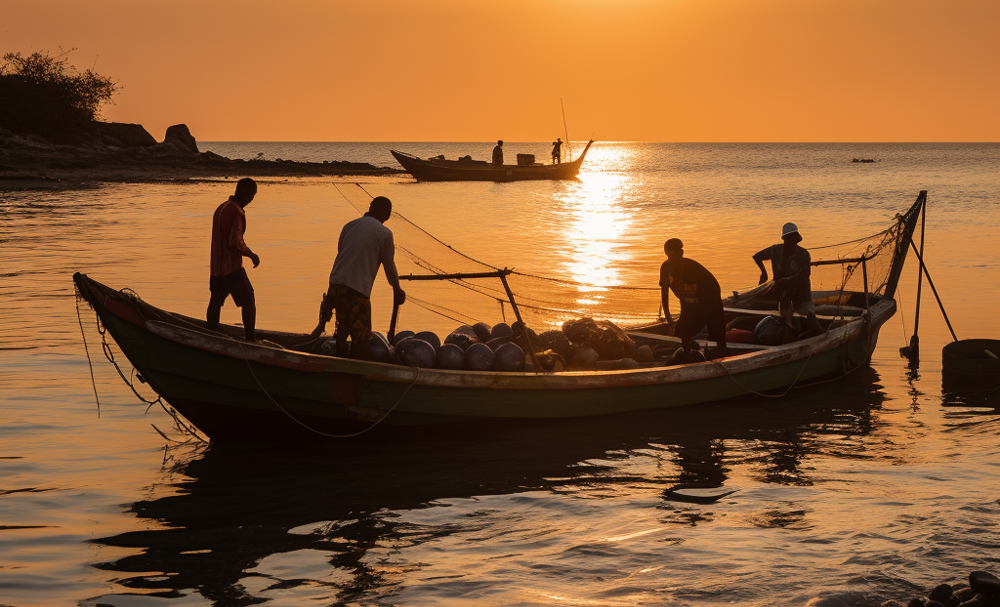A new study by researchers at the School of Public Health, Kwame Nkrumah University of Science and Technology (KNUST), Kumasi has found that nine out of ten fishermen in Ghana’s Western Region have suffered injuries while fishing near oil and gas areas.
The research, published in BMC Public Health (Springer Nature), revealed that 91.5% of the 220 fishermen surveyed had experienced some form of accident within just three months.
The most common injuries were falls, cuts, and fish spine piercings, while a few also suffered burns or electric shocks from fish.
Led by Dr. Thomas Peprah Agyekum, the study assessed fishermen from coastal communities in the Ahanta West District, an area close to Ghana’s offshore oil and gas installations.
It found that none of the respondents used life jackets or lifebuoys, and only a few (1.9%) carried first aid kits during fishing trips; a gap the researchers say puts lives at serious risk.
“Fishing is already dangerous, but safety standards are still very poor. Without proper equipment and training, these workers face serious risks,” said Dr. Agyekum.
The study also found that older fishermen were more likely to be injured, possibly due to long years of work, age-related decline, and overconfidence.
Beyond unsafe practices, fishermen also face challenges such as storms, seaweed, and restrictions around oil rigs, which further increase the dangers of their work. Some reported being harassed or arrested by naval patrols near restricted oil zones.
Most of the fishermen surveyed had little or no formal education and had never received safety training.
The researchers warned that unless urgent steps are taken, the rate of accidents will continue to rise.
They are calling for regular safety training, distribution of protective gear, and stronger collaboration between the government, oil companies, and fisher associations to make fishing safer.
“Fishing feeds thousands of families, but it should not cost fishermen their lives,” the report concluded.
Other authors of the study include Ms. Sita Vidda, Ms. Margaret Ama Odoom, Ms. Emmanuella Darko, Mr. Francis Junior Opoku, Ms. Lady Baaba Donkoh, Ms. Afia Darkoa Opoku-Yeboah, Dr. Ibrahim Issah, Dr. Lawrencia Osae-Nyarko, Dr. Eric Adjei Boadu, Dr. Daniel Boateng, and Dr. Kofi Sekyere Boateng.

















